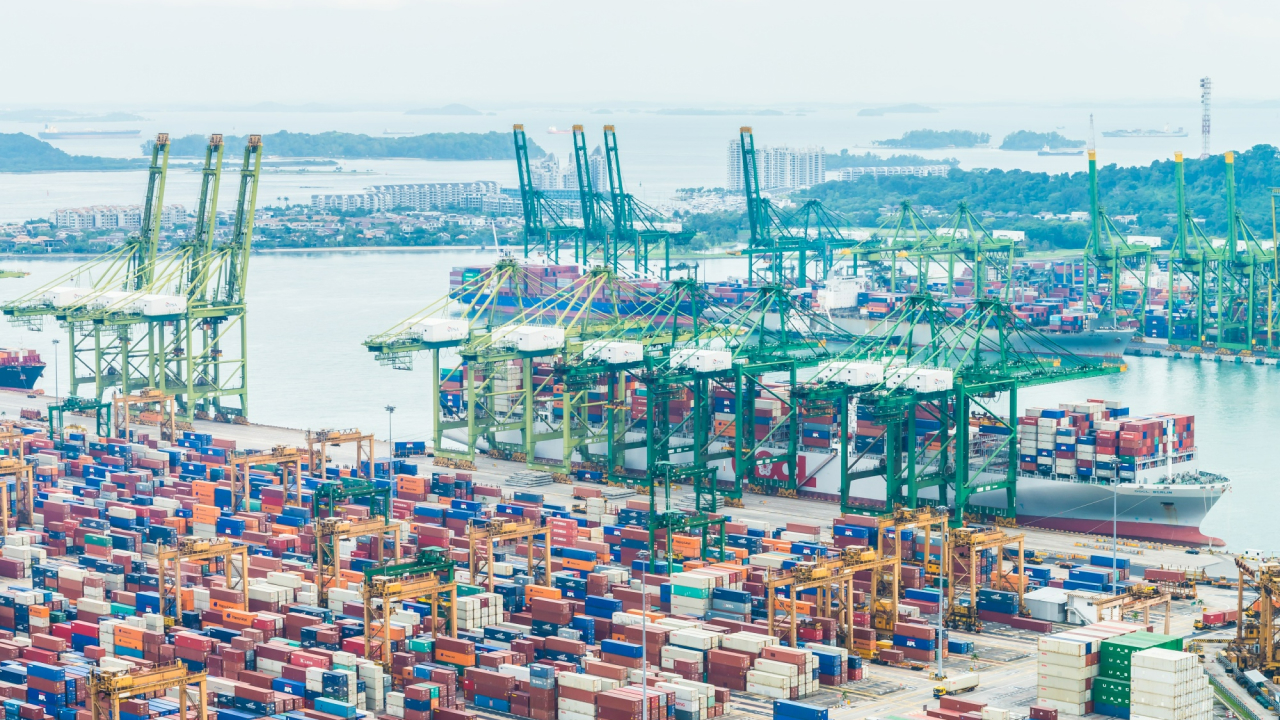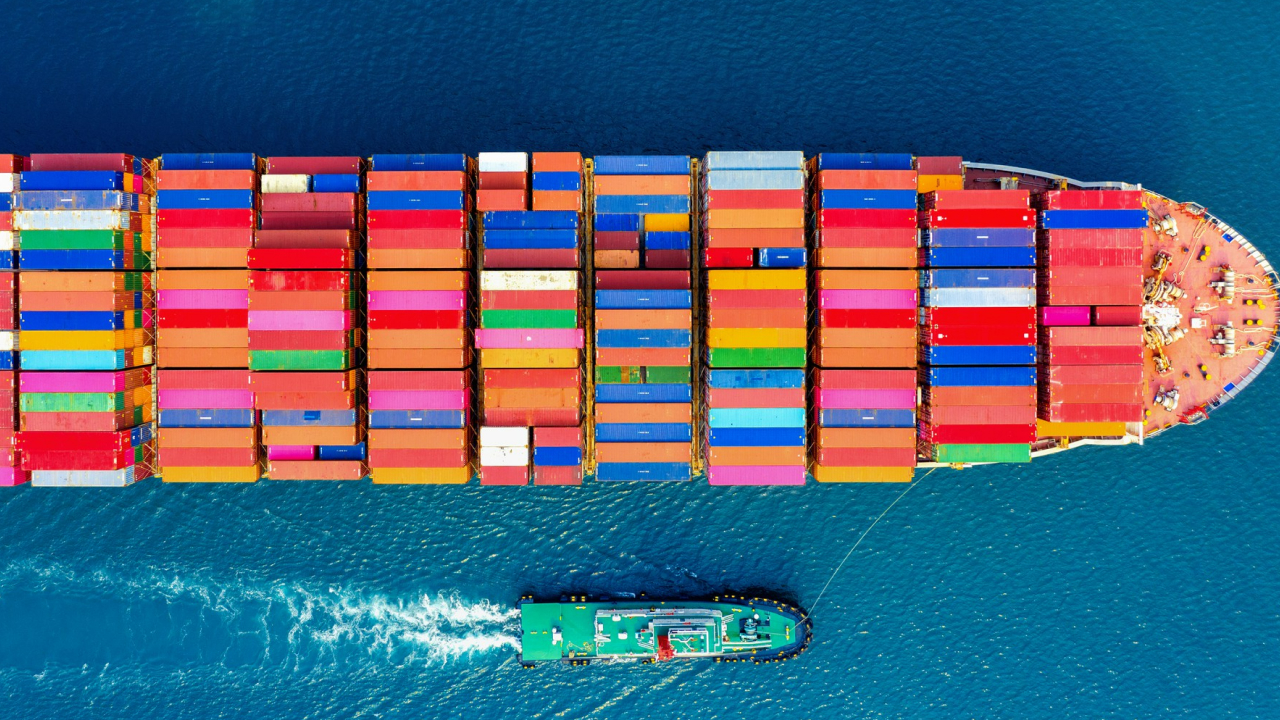
RoDTEP & DBK Scheme
Imagine you’re an exporter in India, preparing to send your goods across the globe. You’ve handled production, packaging, and logistics, but as you finalize your export pricing, hidden taxes and duties start cutting into your margins. The taxes on fuel, electricity, or local levies—costs that aren’t obvious—are inflating your export price, making it harder to stay competitive.
What if there were a way to reclaim those costs and offer your products at more attractive prices internationally? This is where Two such prominent schemes are RoDTEP (Remission of Duties and Taxes on Exported Products) and DBK (Duty Drawback) step in. These government initiatives are designed to ease the burden of embedded duties and taxes, putting more profit back in your pocket. Let’s take a closer look at how these schemes work, what they cover, and the valuable benefits they offer to help your business thrive in the global market.
Understanding the Schemes: RoDTEP and DBK
 RoDTEP Scheme
RoDTEP Scheme
Full Form: Remission of Duties and Taxes on Exported Products (RoDTEP)
Meaning: The RoDTEP scheme was introduced to replace the Merchandise Exports from India Scheme (MEIS), which was phased out after a WTO ruling against it. RoDTEP aims to refund exporters for various central, state, and local duties and taxes that are not otherwise refunded under any other scheme. These include taxes on fuel used in transportation, electricity duties, Mandi tax, and other local levies that get embedded in the cost of the exported goods.
Objective: RoDTEP was implemented with the goal of making Indian products more competitive in the global markets by eliminating hidden costs and ensuring that the pricing of Indian exports is not inflated by domestic duties and taxes.
DBK Scheme
Full Form: Duty Drawback (DBK) Scheme
Meaning: The DBK Scheme is one of the oldest export incentive schemes in India. It is designed to refund exporters the Customs and Central Excise duties paid on inputs that are used to produce export goods. The refund is provided either on a fixed percentage basis (All Industry Rate) or on an actual basis (Brand Rate), depending on the type of product and input.
Objective: The primary objective of the DBK scheme is to ensure that the goods are exported at zero duty, enhancing their competitiveness in the international market.
How Do These Schemes Work?
 Both RoDTEP and DBK operate to neutralize the impact of taxes on exported goods, but they do so in slightly different ways:
Both RoDTEP and DBK operate to neutralize the impact of taxes on exported goods, but they do so in slightly different ways:
RoDTEP
- RoDTEP helps you get back the taxes that can’t be claimed through other means, such as taxes on fuel, electricity, and local charges. These are the small costs that get added without you realizing it, but RoDTEP ensures they are refunded to you.
- The refund is given as duty credit scrips that you can use to pay future Customs duties on imported goods. These credits are available through the ICEGATE (Indian Customs Electronic Gateway) & Directorate General of Foreign Trade (DGFT) portal. Once your refund is processed, it will be issued electronically, and you can view and manage your scrips on this platform.
DBK
- DBK is focused on refunding Customs and Excise duties. These are the taxes you pay on materials imported from other countries or bought within India that are used to make the products you export.
- Similar to RoDTEP, the refund under DBK is also issued in the form of Direct payment to exporters & duty credit scrips. You can use these scrips to pay Customs duties or trade them if needed. The refunds under DBK are also processed through the ICEGATE & DGFT portal.
Once you apply under these schemes, you get a rebate (refund) in the form of duty credits. You can use these credits to pay future Customs duties or even sell them if you don’t need them.
In simple terms, both schemes help reduce your overall costs, making your products more affordable in the global market.
Eligibility and Implementation
RoDTEP Eligibility: The RoDTEP scheme is available to all categories of exporters, including micro, small, and medium enterprises (MSMEs), sectors that rely on manual labor, and merchant exporters who trade goods produced by others. Even manufacturers and traders who export products are covered. However, certain categories have special rules:
- SEZs (Special Economic Zones) and EOUs (Export-Oriented Units): These exporters may face slightly different eligibility criteria, and their benefits under RoDTEP could be limited or structured differently compared to regular exporters.
- Some products and industries may also be excluded from the scheme based on government policy updates.
DBK Eligibility: To claim benefits under the Duty Drawback (DBK) scheme, exporters need to provide detailed proof of the Customs and Excise duties paid on the raw materials or inputs used to manufacture the export goods. There are two ways to claim this refund:
- All Industry Rate (AIR): Exporters can claim a fixed percentage refund based on standard rates set by the government for specific product categories. This is easier for exporters who don’t want to calculate actual duty payments.
- Brand Rate: This is for exporters who want to claim actual duties paid. It involves submitting detailed records and documentation of the specific duties and taxes they’ve paid on inputs. This method gives a more accurate refund but requires more paperwork and verification.
Benefits of the RoDTEP and DBK Schemes
 Both the RoDTEP and DBK schemes offer significant advantages to Indian exporters, helping them reduce costs, enhance global competitiveness, and streamline operations. Here’s a detailed look at the benefits of each scheme:
Both the RoDTEP and DBK schemes offer significant advantages to Indian exporters, helping them reduce costs, enhance global competitiveness, and streamline operations. Here’s a detailed look at the benefits of each scheme:
Benefits of the RoDTEP Scheme
Reduction of Export Costs: RoDTEP covers previously non-refundable taxes and levies, such as taxes on fuel, electricity, and local duties. This reduction of embedded costs makes Indian goods more price-competitive in the global market, ensuring exporters can offer their products at attractive rates.
Boost to Employment: By focusing on labor-intensive sectors like textiles, agriculture, and handicrafts, RoDTEP encourages export activity, which in turn promotes job creation. This is especially vital for MSMEs and industries that heavily rely on manual labor.
Encouragement of MSMEs: Small and medium enterprises, which form the backbone of India’s export economy, benefit immensely from RoDTEP. The scheme helps these businesses lower costs and expand their reach in international markets.
Full Automation and Transparency: The RoDTEP scheme operates on a fully automated, digital platform through the ICEGATE portal, which streamlines the refund process. This automation reduces human error, ensures faster claims processing, and provides transparency, making it easier for exporters to monitor their refunds.
Global Competitiveness: By ensuring that even hidden taxes are refunded, RoDTEP enables Indian exporters to compete more effectively with their global counterparts, ensuring their goods remain competitively priced.
Benefits of the DBK Scheme
Zero Duty Export: The DBK (Duty Drawback) scheme allows exporters to claim refunds on duties paid on imported or domestic inputs used in export production, ensuring goods are exported at zero duty. This significantly lowers the cost of exported goods, giving exporters a competitive edge globally.
Flexibility in Claiming: The DBK scheme offers flexibility to exporters, allowing them to claim refunds in two ways: All Industry Rate (AIR): Exporters can opt for a standard refund rate based on the type of product being exported. This is a straightforward option for most exporters. Brand Rate: For those who want to claim the exact amount of duties paid, the Brand Rate method allows for actual duty refunds based on detailed documentation. This method is beneficial for exporters dealing with high-duty inputs or specific products.
Better Cash Flow Management: By refunding duties paid on inputs, the DBK scheme improves exporters’ cash flow. Exporters can reinvest these funds back into their businesses, scale operations, and maintain liquidity. This financial flexibility is crucial for growth, especially in sectors with tight margins.
Wide Coverage: The DBK scheme covers both Customs duties on imported inputs and Excise duties on domestic inputs, providing comprehensive support to exporters who source materials both locally and internationally.
Encouragement of High-Value Exports: With the option to claim actual duty refunds (Brand Rate), the DBK scheme supports exporters dealing with high-value or custom-made goods, ensuring they can claim refunds accurately based on the inputs used.
Challenges and Recent Updates
 While the RoDTEP and DBK schemes offer substantial benefits to exporters, they are not without their challenges. Here are some of the key issues and recent developments regarding these schemes:
While the RoDTEP and DBK schemes offer substantial benefits to exporters, they are not without their challenges. Here are some of the key issues and recent developments regarding these schemes:
Lack of Calculation Tools: Currently, there are no automated tools available for exporters to calculate their eligible refunds under the RoDTEP and DBK schemes. Exporters must manually check their entitlements, which can lead to errors and inconsistencies. The absence of user-friendly tools complicates the process, making it harder for exporters to determine their exact claims.
Manual Data Verification: Exporters often need to scroll through extensive data related to their scrips and claims manually. This manual verification process is time-consuming and can lead to oversight, further complicating claims submission and increasing the likelihood of delays or inaccuracies in refunds.
Low Refund Rates: In their initial phases, the RoDTEP rates faced criticism for being insufficiently high. Many exporters felt that the rates did not adequately cover all embedded taxes, leading to diminished incentives for certain sectors, particularly those with high taxation levels. This has raised concerns about the competitiveness of goods from these sectors in the global market.
Compliance and Documentation: The DBK scheme requires exporters to submit extensive documentation and provide proof of duties paid on inputs. This process can be particularly cumbersome and time-consuming for small exporters who may lack the resources or expertise to manage the required paperwork. The complexity of the compliance requirements can discourage some businesses from fully utilizing the scheme.
Delays in Refund Processing: Exporters have reported delays in receiving refunds, which can disrupt cash flow and hinder business operations. These delays can be particularly challenging for MSMEs that rely heavily on timely reimbursements to maintain liquidity.
Exclusion of Certain Sectors: While RoDTEP aims to cover a broad range of exporters, some sectors, especially those that are niche or emerging, may not be fully included. This can limit the benefits of the scheme for businesses that are trying to establish themselves in the global market.
Recent Updates
 Recognizing these challenges, the Indian government is actively working on refining both the RoDTEP and DBK schemes to better meet the needs of exporters. Some of the recent updates include:
Recognizing these challenges, the Indian government is actively working on refining both the RoDTEP and DBK schemes to better meet the needs of exporters. Some of the recent updates include:
Review of Refund Rates: The government has been reviewing and adjusting the RoDTEP rates to ensure they are more competitive and reflective of the actual tax burden faced by exporters. This ongoing assessment aims to enhance the effectiveness of the scheme and provide more robust support to all sectors.
Simplification of Processes: Efforts are being made to simplify the compliance and documentation requirements for the DBK scheme. The government is exploring ways to streamline processes and reduce the burden on small exporters, making it easier for them to claim refunds.
Technology Integration: The use of digital platforms is being expanded to facilitate quicker processing of claims and refunds. By leveraging technology, the government aims to reduce delays and improve transparency in the refund process, ensuring exporters receive their benefits more efficiently.
Sector-Specific Support: The government is also considering sector-specific adjustments to the schemes to ensure that emerging industries and niche sectors receive adequate support. This tailored approach is intended to enhance the overall effectiveness of the RoDTEP and DBK schemes.
Feedback Mechanism: The Indian government is encouraging feedback from exporters and industry associations to better understand the challenges they face. This feedback will play a crucial role in shaping future updates to the schemes, ensuring they remain relevant and beneficial.
Conclusion
The RoDTEP and DBK schemes are crucial components of India’s export promotion strategy. By ensuring that domestic taxes and duties do not inflate export prices, these schemes help Indian goods remain competitive on the international stage. While RoDTEP focuses on covering non-creditable taxes and levies, DBK deals with refunding Customs and Central Excise duties on inputs. Together, they contribute significantly to making Indian exports cost-effective, thereby supporting the country’s mission to become a global export hub.
Exporters should stay updated with the latest scheme announcements and rates, as these can significantly impact their profitability and market positioning. With continuous enhancements, these schemes are set to further strengthen India’s export ecosystem in the years to come.

 RoDTEP Scheme
RoDTEP Scheme